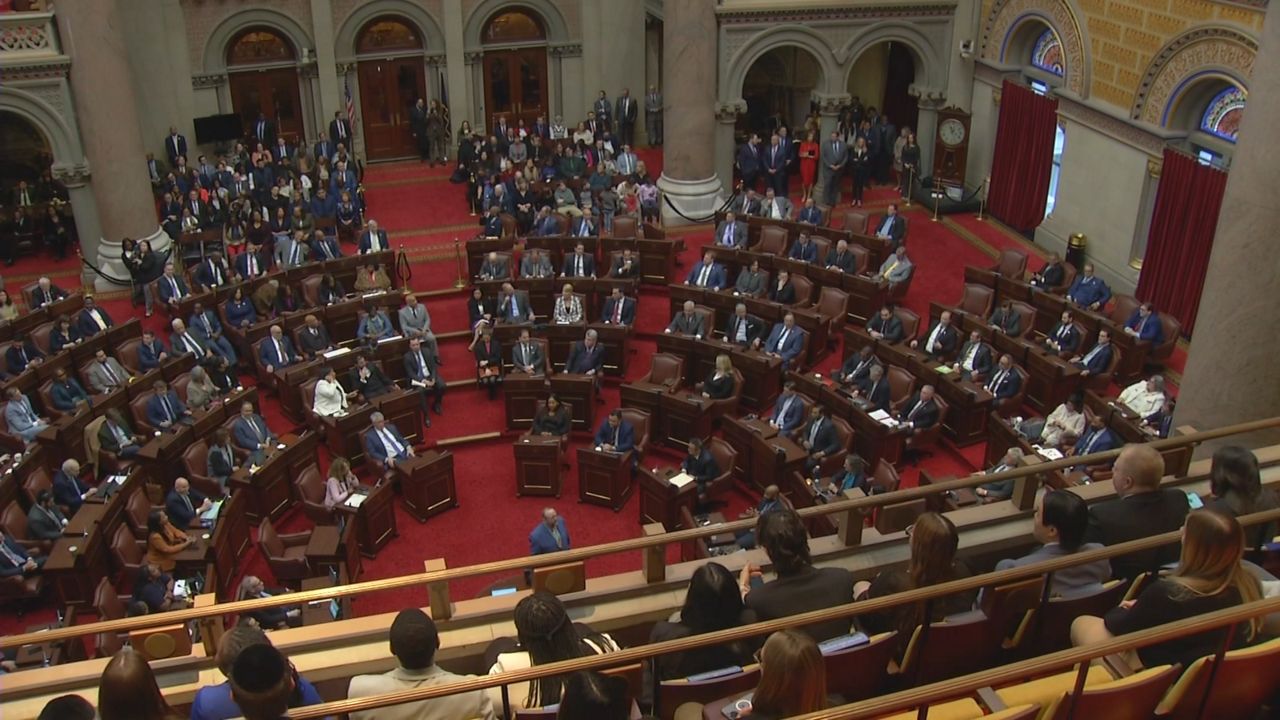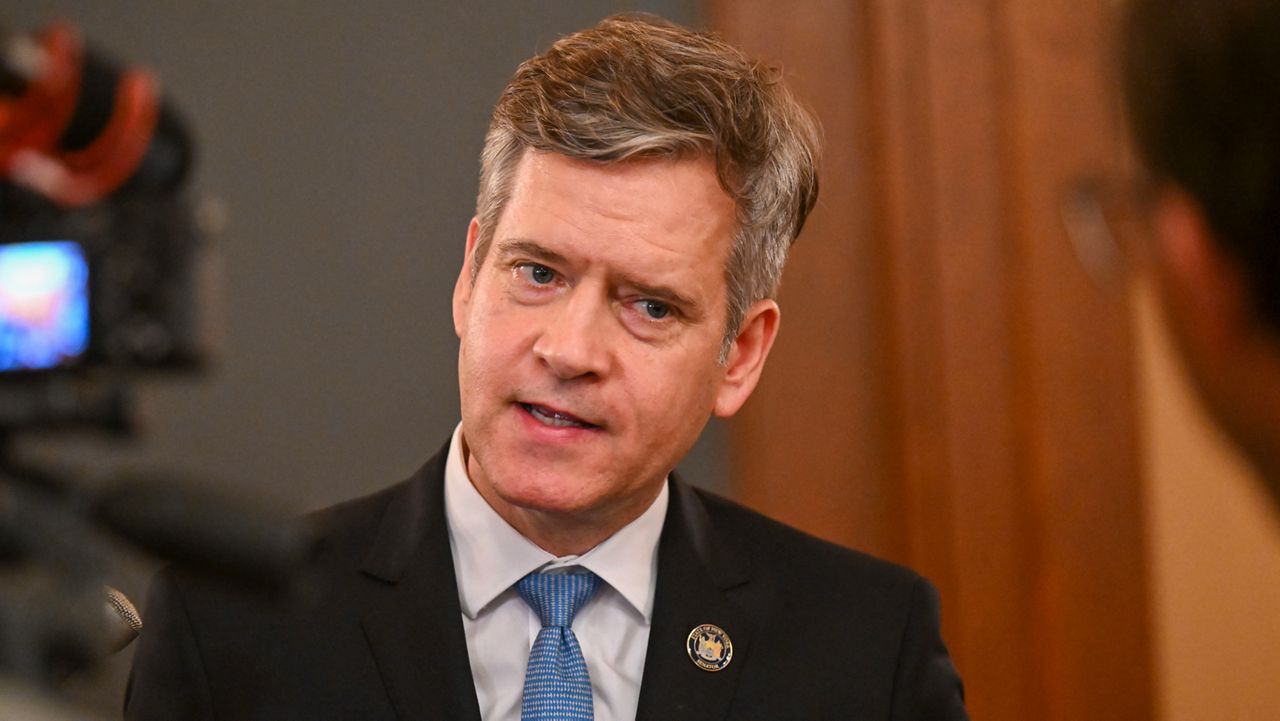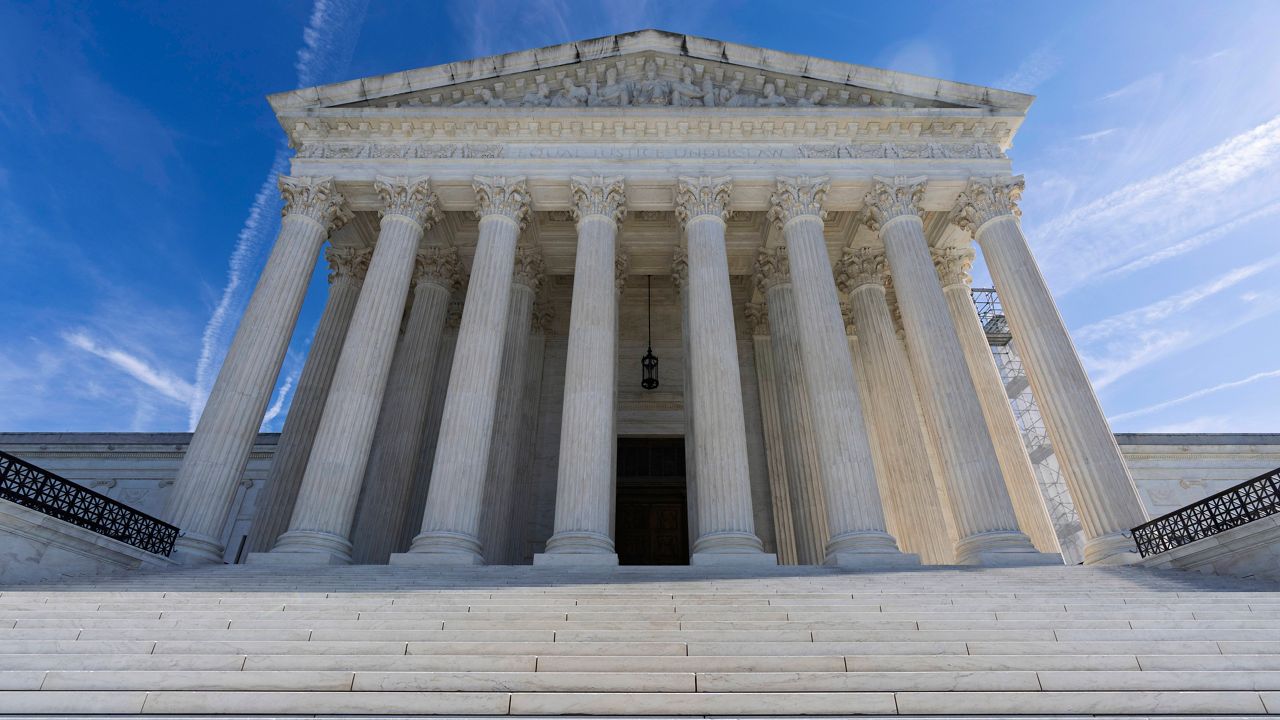Sources said Gov. Kathy Hochul is expected to veto a bill Friday for a second time that would improve transparency of state spending, but state lawmakers said they're prepared to pass the measure as many times as it takes to become law.
Current state Finance Law does not require the state comptroller's office to review state contracts after the executive declares an emergency. And state leaders sometimes remove that oversight during negotiations — like with a recent $9 billion Medicaid home care contract.
"When our oversight is diminished, one of the sacrifices is, you lose transparency," state Comptroller Tom DiNapoli told Spectrum News 1. "You can't have accountability without transparency."
Lawmakers unanimously passed a bill earlier this year to require summaries of state contracts to be posted online of agreements exempted from comptroller review.
Sources say the governor is expected to veto the measure Friday, citing a lack of state resources to post a few lines of contract information during an emergency — even though the change would apply to all contracts exempt from comptroller oversight.
About a year ago, Hochul vetoed a broader version of the legislation that would have mandated the entire contract be posted online within 30 days over concerns about the required timeline.
"My preference, frankly, would have been the initial legislation, but the argument was that it would be onerous," DiNapoli said.
State lawmakers said recent issues with spending decisions made during an emergency, like the COVID-19 pandemic or to address an influx of asylum seekers, shows the state needs to be more transparent and protect taxpayers.
When Gov. Kathy Hochul took office in 2021, she vowed her administration would mark a new era for Albany — one that would shine new light on state operations and to post more public records online.
"In a new era of transparency and one of the hallmarks of my adminsitration, because to me it's very simple, we'll focus on open, ethical governing that New Yorkers will trust," Hochul said during her inaugural address at the time.
And now, state leaders are asking her to keep her word.
"This is just the right thing to do by New Yorkers," Assembly sponsor Michaelle Solages said Thursday. "Let's take any shadow of a doubt out of the conversation and ensure we're bringing sunshine to state government."
Hochul's staff recently contacted Solages about the bill with a list of questions, including about the timeline to post information.
Solages, who chairs the state's Black, Puerto Rican, Hispanic, and Asian Legislative Caucus, said lawmakers listened to the governor's concerns in last year's veto message, and reintroduced a watered-down version of the bill that requires the state to publicly post a synopsis of each contract, including the total amount and reason for selecting a vendor, instead of the entire document.
Publicizing summaries of contracts, the assemblywoman said, would still protect New York taxpayers from waste, fraud and abuse.
"We essentially took out the complicated and time-consuming efforts and we made it very streamlined," Solages said. "To me, it's a common-sense piece of legislation and we hope that the governor signs it because we want to ensure that any executive moving forward provides transparency to people. I don't think that's a big task — especially in this day and age with technology."
The transparency debate has been used as a larger political football.
Bronx Rep. Ritchie Torres, who's eyeing a gubernatorial run in 2026, wrote Hochul a letter this week urging her to sign the measure — arguing more transparency is needed for New Yorkers to regain confidence in government.
"If the governor has nothing to hide, then there is no reason to veto this legislation that would bring greater transparency to these contracts," he said.
Solages said state lawmakers will continue to pass the bill each year it until it becomes law.
"We have to get away from that culture of corruption and questionability and bring new energy, life and confidence back into state government," the assemblywoman said.
DiNapoli and lawmakers stressed the requirement to post state contracts online would not cost the state additional funding or resources.











